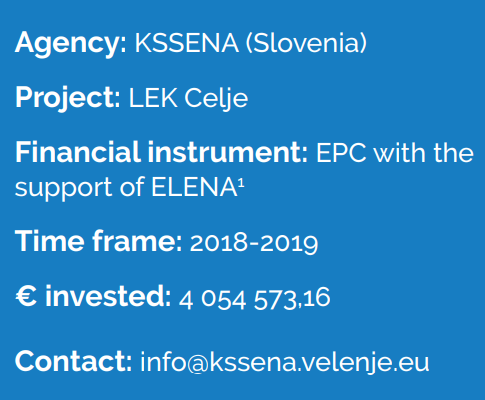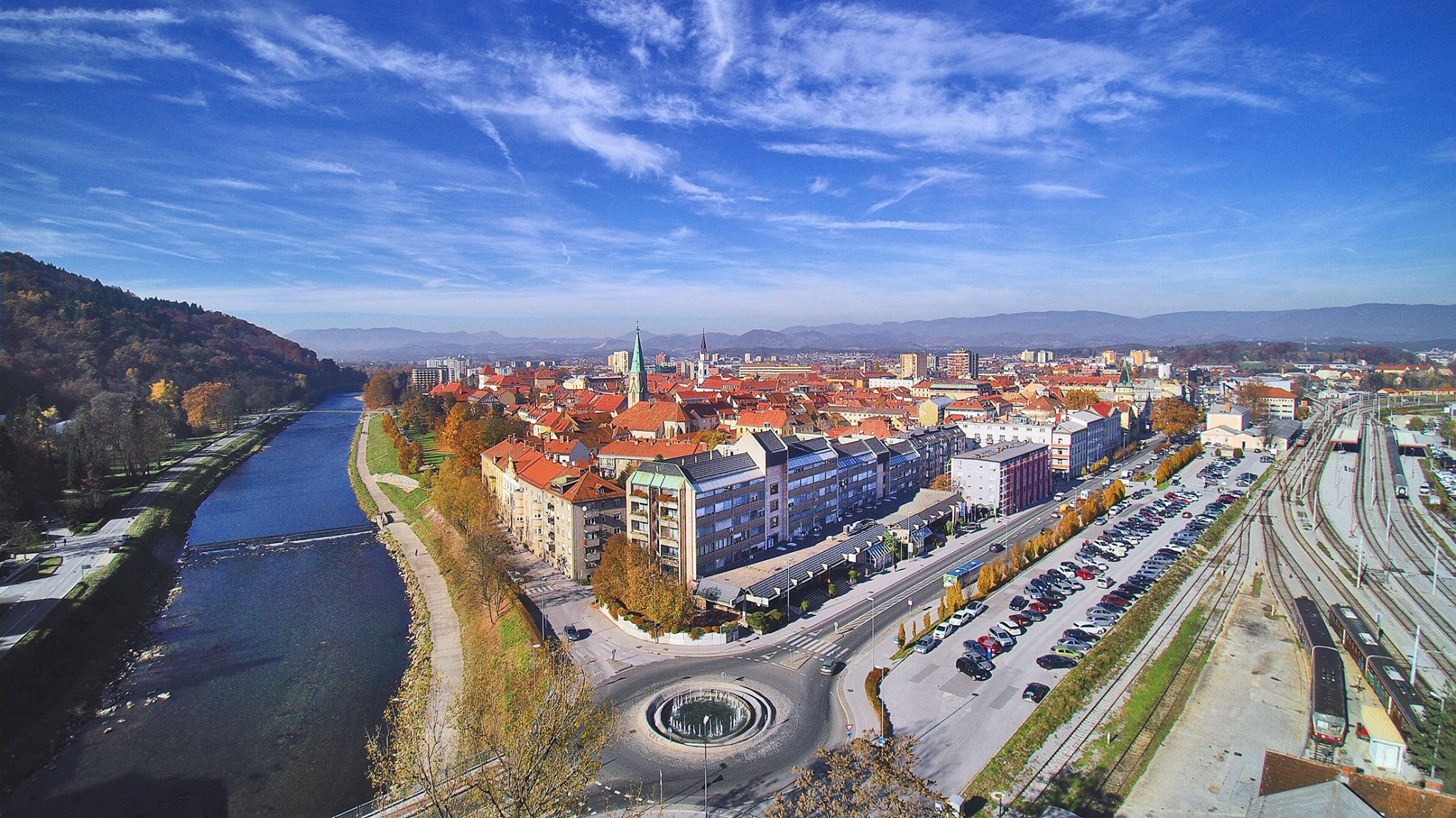Celje deals with heavily polluted air, which is the result of several factors such as industrial activity, heavy transit traffic, high number of old and inefficient individual heating systems and building stock, and unfortunate climate conditions related to its location in a valley. The municipality was thus in great need of developing a new local energy concept (LEK) and strategy to reduce Celje‘s energy consumption and CO2 emissions and to increase its use of renewable energy sources (RES), ultimately improving the overall air quality.


1ELENA – European Local ENergy Assistance provides technical assistance for energy efficiency and renewable energy investments targeting buildings and innovative urban transport. This service is provided by the European Investment Bank (EIB).
The development of LEK Celje began in September 2018 and ended in February 2019. To bring the LEK into realisation, a long period of data collection and analyses was required, involving several stakeholders from different governance levels. KSSENA Energy Agency and the municipality of Celje collected data from different sources (municipal databases, databases of sectoral agencies and local energy agencies, private and public company databases - both energy consumer companies and energy providers - and KSSENA‘s own data from surveys, measurements and fieldwork).
Celje’s new local energy concept suggested more than 30 measures to be implemented, notably: connecting individual households to a district heating system; the energy refurbishment of public buildings; renovation of public lighting; building of new traffic infrastructure for transit traffic; encouraging environmentally friendly public transport; increasing the use of RES; implementation of better energy management; encouraging the implementation of energy audits and energy bookkeeping in companies; etc. The expected results of the successfully implemented measures are estimated to be (baseline year is 2017):
- a 12% reduction of heating energy consumption by 2028;
- a 5% reduction of electricity (power) consumption by 2028;
- a 3% increase of RES production by 2028;
- a reduction of CO2 emissions (from both electricity and heating consumption) under 1,11 tonne per inhabitant.
To achieve these ambitious goals, KSSENA used the knowledge gained at the ManagEnergy Master Classes and Expert Mission, as well as the insights from several EU funded projects. Both KSSENA and Celje have practical experience in Energy Performance Contracting (EPC) and energy renovation of buildings. In the past years, 8 buildings were successfully renovated through an EPC project with pulling principle, where buildings with lower savings potential were successfully added to the EPC project and fully renovated.
The final list of buildings was set in a public tendering process (competitive dialogue), and selected buildings were:
- 4 primary schools;
- 1 kindergarten;
- 1 representative historical building (cultural heritage building).
Total project costs for deep energy renovations were € 4.054.573,16, and financial sources are split among: Private partner – Energetika Celje, d.o.o. (49%), Municipality of Celje’s budget (11%), grants for preparation of investment documentation (ELENA 0,7%) and Ministry of Infrastructure of Slovenia (EU and national funds - 39,3%). For the coming years, KSSENA and Celje aim to facilitate new energy renovation projects to renovate all energy insufficient public buildings of the municipality. Peer to peer learning and exchange of experience such as the one provided in ManagEnergy is crucial to provide the best value for the public budget, create a healthy environment for all and increase the resilience of the public infrastructure.
Source: Energy Agencies Leading the Energy Transition, 2017 - 2020 publishable report.


